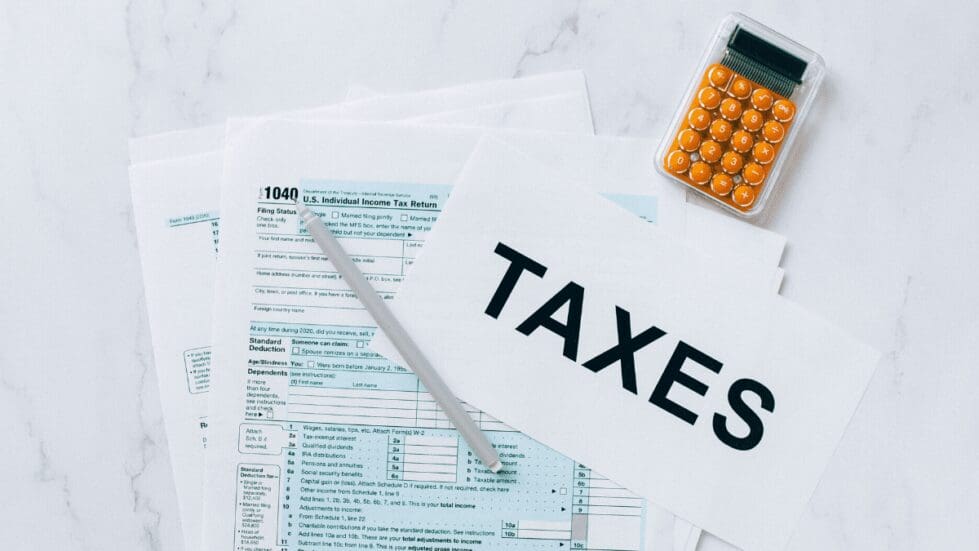

House committee votes in favor of tax bill
A House finance committee released a bill that ultimately will allow low-wage earners to keep more of their money, a move that will cost the state 10s of millions every year.
House Bill 89, sponsored by Rep. Paul Baumbach, D-Newark, would do three things:
- Increase the amount of refunded tax from 4.5% to 7.5% for low-wage earners who meet the federal Earned Income Tax Credit requirements.
- Raise the income floor for those who qualify for that tax credit to $11,828 for individuals and $20,349 for filing jointly from $9,378 and $15,449 respectively.
- Increase the state’s standard deduction amount from $3,250 for individuals and $6,500 for people filing jointly to $5,700 for individuals and $11,400 for people filing jointly, starting with the 2024 tax season. That will allow more people to file taxes using the standard deduction rather than the more complicated itemized tax form.
The move suits both the progressive Democrat push to help lower-wage workers in a variety of ways, and the Republican determination to lower taxes on workers, which consistently fails in the Democrat-majority General Assembly.
Secretary of Finance Richard Geisenberger said in response that his department has gone live with an integrated personal income tax system, so there won’t be issues with House Bill 89.
In the fiscal note for the bill, the Controller General’s office predicts that it will cost the state $24.9 million in lost revenue in the 2024 fiscal year, $55.7 million in the 2025 fiscal year, and $57.2 million in the 2026 fiscal year.
Rep. Jeffrey Spiegelman, R-Townsend/Hartley, said that House Minority Leader Mike Ramone, R-Pike Creek, couldn’t attend the meeting but asked Spiegelman to point out that the bill is similar to bills Republicans have been proposing in recent years that didn’t get bipartisan support.
Ramone would have liked those bills to receive bipartisan support, Spiegelman said.
Rep. Sherry Dorsey Walker, D-Wilmington, said that Spiegelman could sign on as a bill backer if he wanted to, and Spiegelman said he might.
The bill; already has 11 additional sponsors and cosponsors, including 10 Democrats and one Republican, Senate Minority Leader Gerald Hocker.
The bill has been assigned to the House appropriations Committee.
Rep. Krista Griffith, D-Greenville, pointed out in the House Revenue and Finance Committee Tuesday that previous tax bills have had issues with getting technology working in a timely manner.
Secretary of Finance Richard Geisenberger said in response that his department has gone live with an integrated personal income tax system, so there won’t be issues with House Bill 89.
Also Tuesday, House Bill 67, was tabled. It would exempt someone from paying a realty transfer tax if they already had paid the tax on another property deal within the past year.
The bill was sponsored by Rep. Bryan Shupe, R-Milford. Shupe is the CEO of Delaware LIVE.
Rebecca Goldsmith, deputy Secretary of Finance, opposed the bill, saying a decrease in revenue generated by this tax without another offset would create a “long-term revenue decline”.
The realty transfer tax generated around $304 million for the general fund last year, and is expected to generate $240 million this year. The decline reflects a slowdown in the housing and commercial property market after several years of record sales.
The bill had five cosponsors, all of whom are Republicans.
Goldsmith said that the bill would create a loophole where people could sell cheaper properties and then sell more expensive ones, paying less in taxes.
She said it’s also a regressive tax, which means it puts a larger burden on lower-paid people, because owners of the highest home values would get the biggest benefit.
Goldsmith said that they’d be happy to work with Shupe to close some of the loopholes found in the bill.
Share this Post


